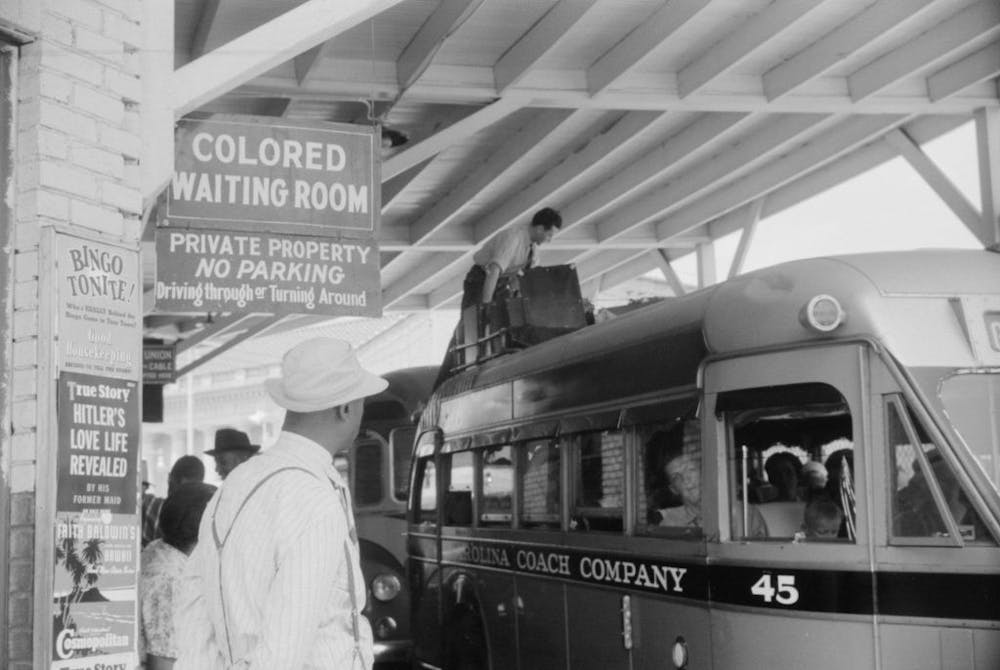This year marks the 400th year since the first enslaved Africans were brought to North America in 1619. Wilson Library’s “On the Move: Stories of African American Migration and Mobility” examines various personal stories of African Americans through history and their experience with social and physical mobility.
The exhibit is open until Jan. 15, 2020.
“We’re thinking about ‘How did we get here and what has happened since (1619)?’,” said Chaitra Powell, African American collections and outreach archivist at UNC University Libraries.
Talking openly about racial issues of the past is ultimately a social justice issue, said Rachel Reynolds, exhibition coordinator for Wilson Special Collections Library.
“Because by opening our eyes to the reality of some of our past, we can look around us now at society and understand inequalities and inequities that exist — where they come from and why something needs to be done about that,” Reynolds said.
Powell said she chose to focus on many personal stories and profiles rather than more general stories to highlight the humanity within the stories.
“One of my other challenges was, how do I tell stories with an African American’s perspective in a collection that hasn’t always collected things from African Americans, or in our voices,” Powell said.
Presenting people in their own words and with a photograph provides a much stronger and more immediate connection for the visitor because slavery and segregation happened to real people, Reynolds said.
The exhibit examines six different modes of transportation, such as buses, trains, cars and airplanes and their relevance to African Americans in the past 400 years.



